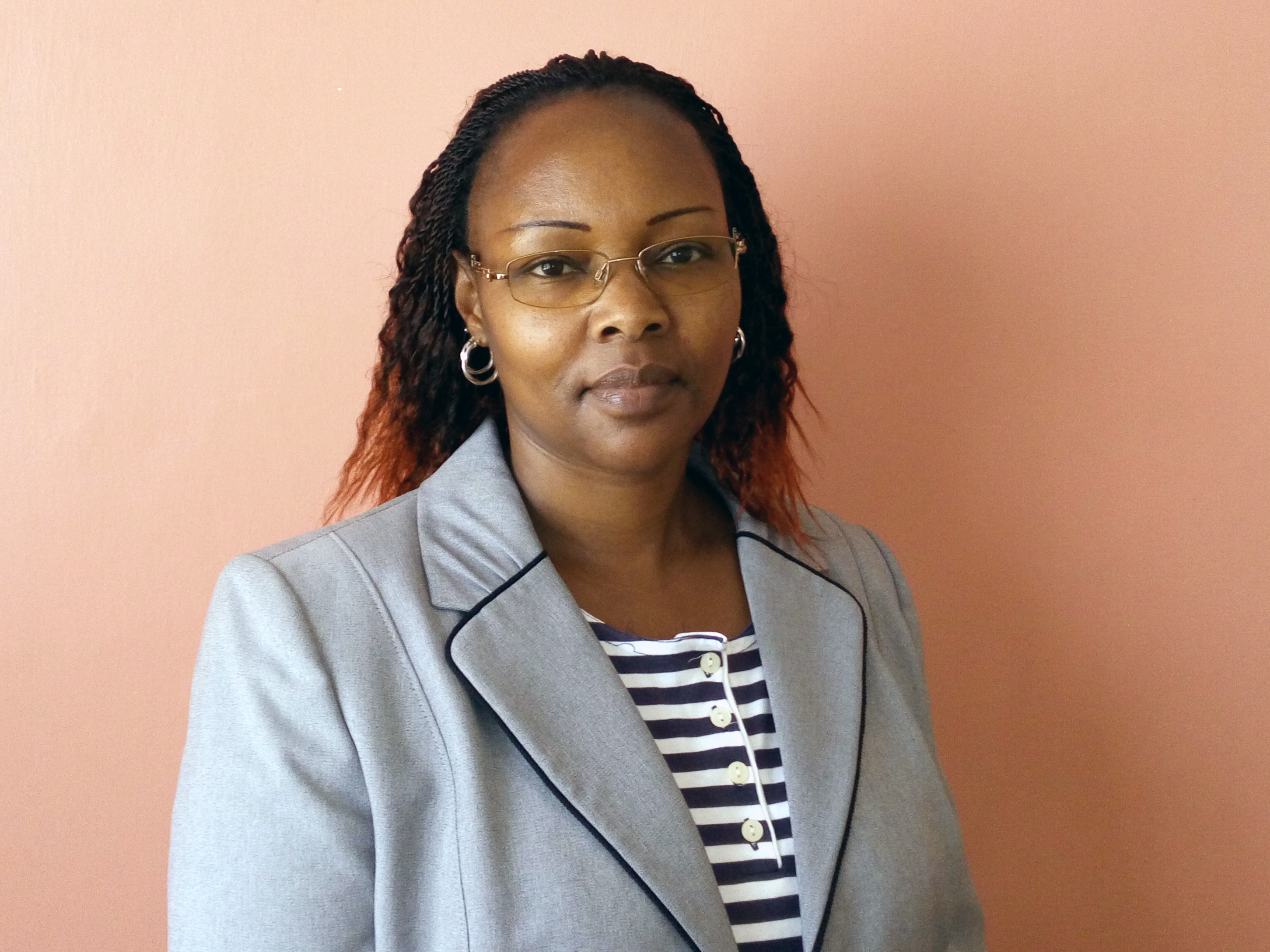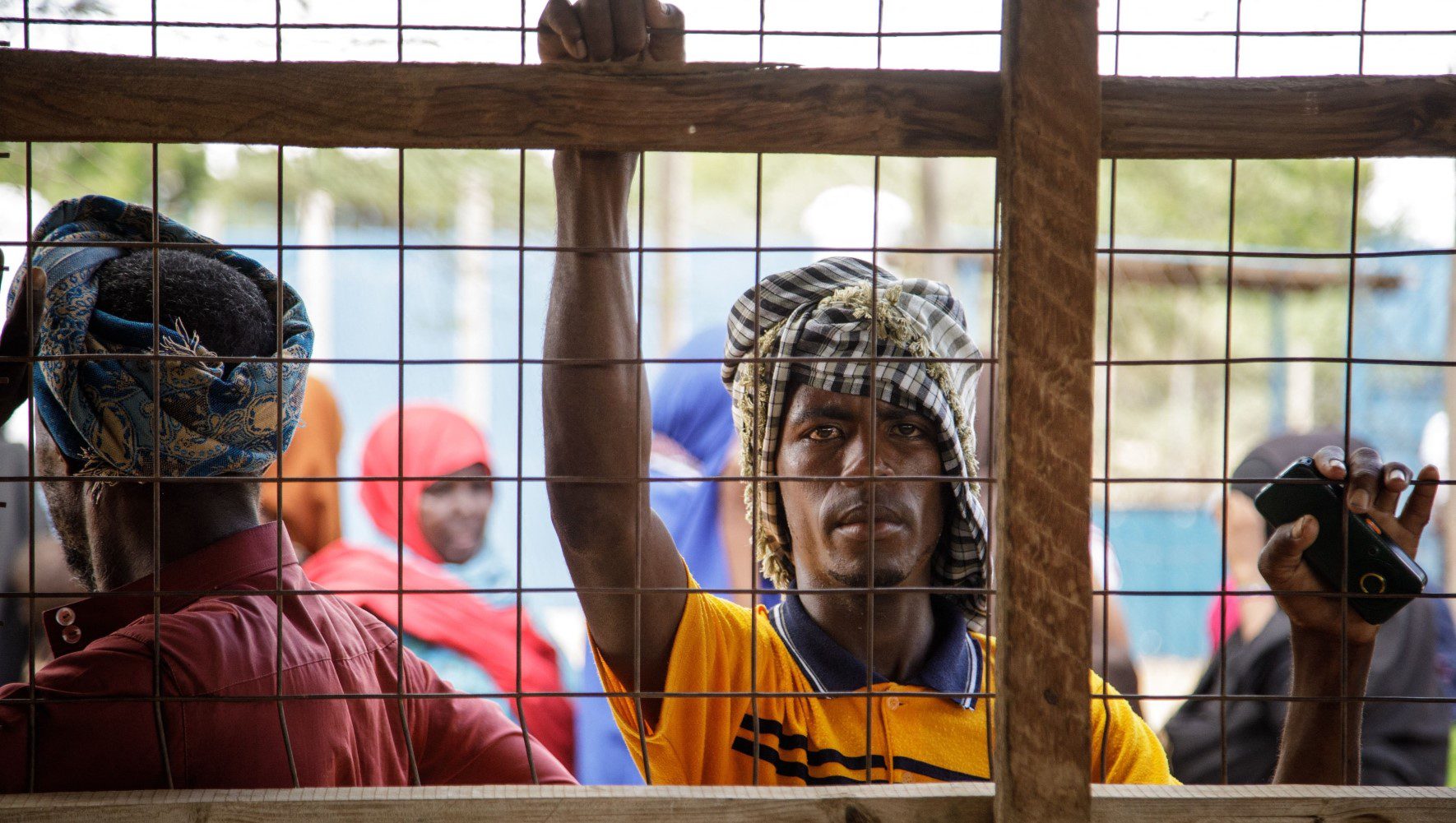Lucy Kiama, Helping the Most Vulnerable Refugees in Kenya
By Rachel Nusbaum, HIAS.org
Jan 11, 2016

Lucy Kiama joined HIAS Kenya as country director in September of 2015.
(HIAS)
Ask Lucy Kiama about refugees or victims of sexual violence in Kenya and she instantly offers a wealth of information and useful context. Her accent is lovely, almost musical, but the words are serious and full of determination.
Kiama has been a leading advocate for refugee rights in Kenya for the past decade. She spent six years as the executive director of the Refugee Consortium of Kenya, where she managed a wide range of programs focused on increasing refugee protection.
“What drew me to HIAS was the focus on helping the most vulnerable,” Kiama says. “That has been my career. I like putting together frameworks that help people who are disadvantaged in society to move on with their lives. Being forcibly displaced from their countries does not mean that their lives have stopped.”
Kiama joined HIAS Kenya as country director in September 2015. So far, she says, “the staff at HIAS Kenya has amazed me. They are very well trained and they really know their stuff. And I am amazed by the number of people we are helping. Our staff are doing so much, for so many clients, with really limited resources.”
The challenges in Kenya are as much about the political environment as about capacity, Kiama says. “We had a very ugly attack here [on the Westgate shopping mall in 2013] and the committee that was formed by parliament to look into the attack, recommended that the refugee act [that protects the human rights of refugees living in Kenya] be repealed and that the refugee camps be closed.”
Kiama was part of a task force formed by the Department of Refugee affairs to review the draft refugee legislative proposal, as well as to develop the draft national asylum and refugee policy. She also worked with the Urban Refugee Protection Network to advocate for refugees in urban areas when the Government of Kenya issued a directive that all refugees move to Dadaab and Kakuma refugee camps. The petition, filed by Kituo Cha Sheria and the Refugee Consortium of Kenya, was certified urgent and the court declared the directive unconstitutional, allowing refugees to continue to live in urban areas in Kenya.
She went to court again when a Security Amendment law was passed in 2014 to limit the number of refugees allowed in Kenya at any given time to 150,000. This would have been a serious blow as there are currently about 600,000 registered refugees living in Kenya. “We challenged that clause in that law, and it was declared unconstitutional. That’s something we were really happy about,” Kiama says. “The Kenyan Government is still allowing refugees into the country.”
Still, the media coverage of the attacks and the ensuing legislation directed at refugees stirred up a lot of negative public sentiment. “Under normal circumstances, Kenyans don’t care whether you’re a refugee or not, but politicians can incite xenophobic attitudes,” Kiama notes.
Kiama’s ultimate goal is to help the most vulnerable refugees in Kenya develop increased resilience and self-reliance. It’s a tall order, but her record shows she can handle a challenge.



